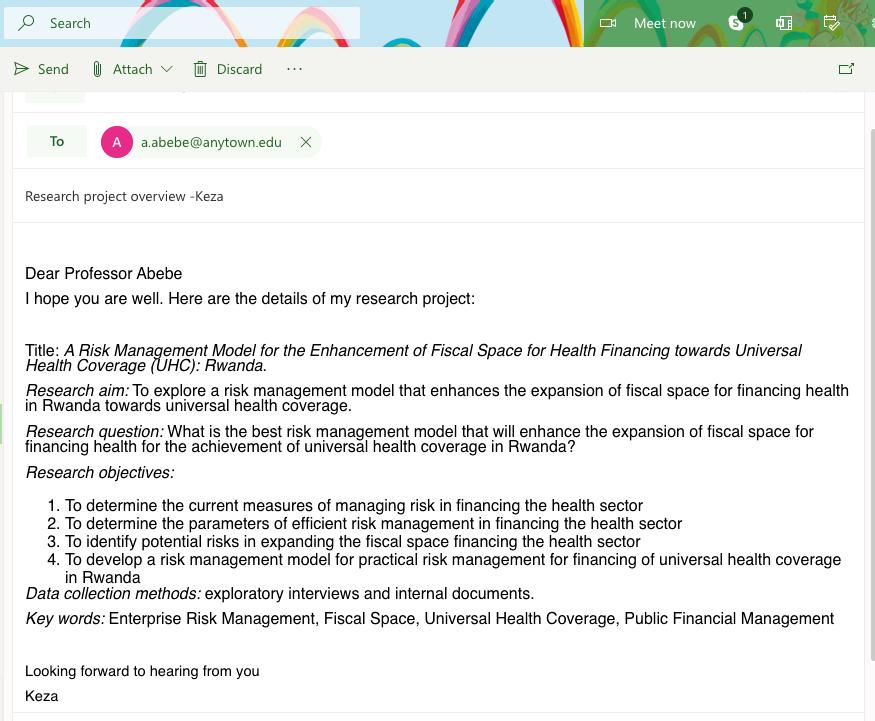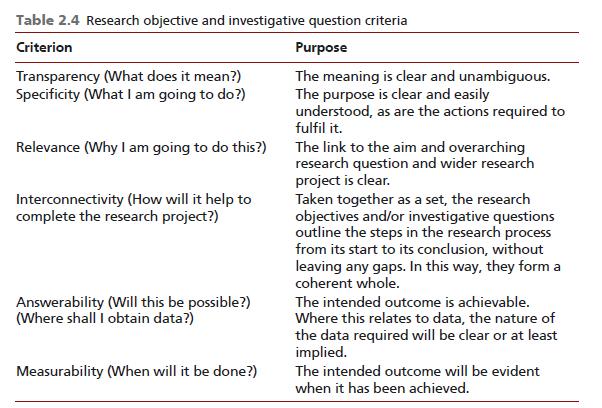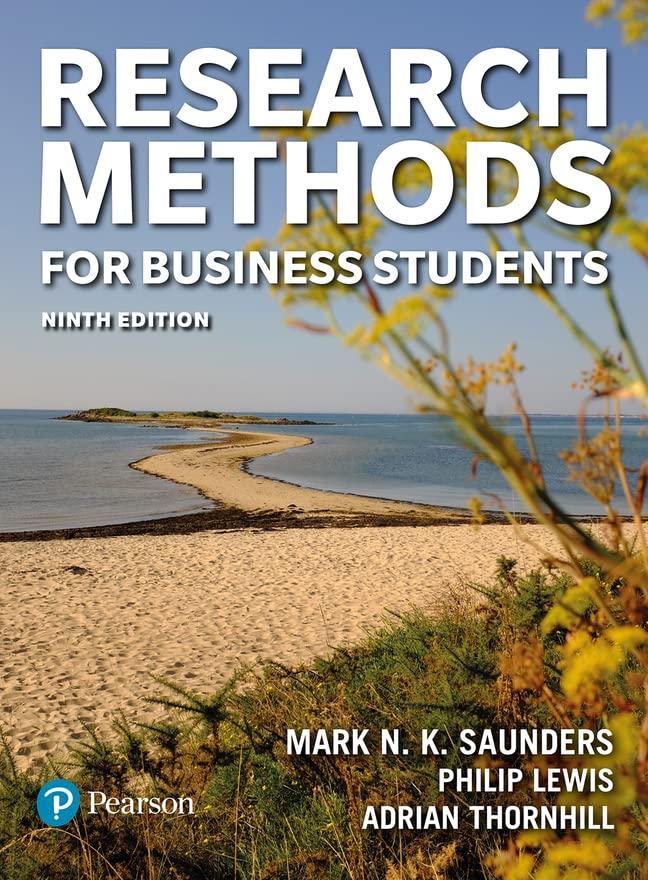Keza is studying online for a masters degree in Management and wishes to undertake her research project
Question:
Keza is studying online for a master’s degree in Management and wishes to undertake her research project in her home country, Rwanda, where she works as a civil servant. Due to her high pressure job, sometimes requiring working out of hours, she feels she has very little time to allocate to her degree, so she needs to be pragmatic about the choices she is making about her dissertation: it needs to be interesting enough to keep her motivated to study at the end of a tiring day or week, it needs to not require too much time to understand the organisational context and the academic literature she will need to review, and she will definitely not have time to develop skills in a new method. She has used interviews before in her undergraduate dissertation and also interviews people at work, so feels these should be easy to implement again.
 Both as a civil servant and as an MSc student, Keza is interested in public finance, more specifically financial management and universal health coverage in Rwanda. She decides to study
Both as a civil servant and as an MSc student, Keza is interested in public finance, more specifically financial management and universal health coverage in Rwanda. She decides to study

this for her dissertation, as she has access to data (both archives and interviewees) through her work and already knows her line manager is supportive of her studying while working and, through her academic project, contributing to the wider work of her department.
Keza prepares her overarching research question, research aim and research objectives which she emails to her project tutor (see above).
Her project tutor’s feedback is that this provides a good start. However, the research aim might be a little too narrow, is too applied, and it is unclear regarding to which bodies of literature the topic is anchored. Keza is a little confused about the comment about the literature, but also relieved that at least her topic is not ‘too wide’.
Keza’s project tutor also comments that there appears to be a mismatch between her research aim and research objectives and her indicative methods of inquiry. Keza is surprised by this comment and considers her methods to be entirely feasible: she had access to that data through her work and prior experience of the methods having conducted interviews for her undergraduate dissertation.
Questions
1 Has Keza’s shown a clear link to theory for her topic?
2 In what way(s) is Keza’s topic ‘too narrow’? Make reference to the AbC rule to support your answer.
3 How has Keza’s pragmatic nature and her intent to make her research feasible distracted her from formulating an appropriate research aim and research objectives?
4 Is Keza’s research question exploratory, descriptive, explanatory or evaluative? In what way is there a ‘mismatch’, as highlighted by her project tutor’s feedback?
5 Applying the criteria on Table 2.4, do Keza’s research objectives seem transparent, specific, relevant, interconnected, answerable, measurable; and do they fully address her research question/research aim?
 6 Reformulate Keza’s research aim, to make it compliant with the AbC rule. Remember that Abc refers to one or more abstract, theoretical concepts and only C as the context can limit these, e.g. to work environment, geography, type of situation, type of people.
6 Reformulate Keza’s research aim, to make it compliant with the AbC rule. Remember that Abc refers to one or more abstract, theoretical concepts and only C as the context can limit these, e.g. to work environment, geography, type of situation, type of people.
7 What areas of literature should Keza focus on in her dissertation?
Step by Step Answer:

Research Methods For Business Students
ISBN: 9781292402727
9th Edition
Authors: Mark Saunders, Philip Lewis, Adrian Thornhill





